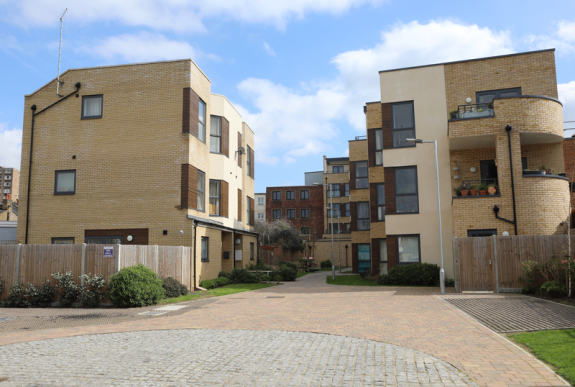
These are your views on intermediate housing
From 3 August until 11 October 2020, we ran the Intermediate Housing consultation on Talk London. Almost 1,400 of you started the survey and we received over 150 comments.
A big thank you to everyone who took part. We have now analysed your views and shared them with our Housing team. Here’s what you told us on intermediate housing: schemes below the market rate housing that is below market rates, but not including social (i.e. council) housing).
Shared ownership
Broadly speaking, you felt that shared ownership (SO) is not an effective way to tackle the issue of housing within London. You felt it doesn’t get to the root of the problem – a lack of supply of housing which forces up prices and creates a situation in which many people cannot afford to rent, let alone buy.
The majority of you didn’t comment on shared ownership itself, but instead proposed other initiatives designed to make London’s housing market more affordable, and thereby potentially removing the need for shared ownership. Some mentioned that there is no point in the government investing in shared ownership schemes if private rents continue to be so high that people are unable to save the deposit for a SO home. Accordingly, there is very strong support for more regulation in the rental/housing market, namely:
-
Rent caps, so people can save to buy whilst renting
-
Better conditions for renters, such as improved security of tenure, so people wouldn’t need to buy their home to enjoy long-term security
-
Limiting the number of properties an individual can own (reducing empty homes) – which would cool demand and decrease house prices and rents.
One of our members, Londonlivinggal, commented that: "London Living Rent and Intermediate rent is more a priority than shared ownership. But more important is putting some controls/caps in place for outrageous rent and insane house prices. [Lack of rent controls are] why intermediate rent, London Living Rent, shared ownership is needed, and it’s shocking that this is the case."
You also show strong support for increasing the amount of social housing available (vs. spending money on SO schemes) and preventing this from being sold. You feel that housing should be a major priority of both central and local government. Some of you perceived SO schemes as ‘taking money away’ from – or being established at the expense of – social housing, leading to unfavourable comparisons between the two.
Only a small number of your comments mentioned key workers. The majority of these reflected views thought that key workers shouldn’t necessarily be prioritised for housing – rather, all those on low wages should be. Such responses argued that housing is a human right, and access to it should not be determined by occupation.
Another member, Glenn the council renter, felt that: "Decent housing should be recognised as a human right. It is not an artefact which particular factions of the population should be awarded as a privilege. The notion of "key worker" amounts to a revamp of the distinction between "deserving" and "undeserving". What is needed is council housing built in house by local authorities at rents which are set according to the actual levels of people's income."
London Living Rent
You much prefer London Living Rent (LLR) to shared ownership. You felt that LLR responds to a clear need: helping those who cannot afford to buy but are not eligible for social housing. Many of you highlighted the importance of the affordability of LLR (i.e. lower rents), but there was less understanding of the way in which it can help people move into homeownership more directly. LLR is designed to support tenants into home ownership within ten years, with them being offered the opportunity to purchase their home on a shared ownership basis having paid a genuinely affordable rent to enable them to save for a deposit. Many of you, however, thought of LLR as more akin to rent control, without a specific aim of home ownership (although, of course, cheaper rents could make it easier for some tenants to save up and buy a home on the open market, should they wish).
In terms of improving the experiences of Londoners living in intermediate housing, a key theme was increasing access to impartial advice:
-
Ensuring transparency over long-term costs and risks. Several of you living in SO homes mentioned significant increases in service charges (and in some cases rent as well) over your time there, ‘with very little transparency on where the money is being spent’. Increases in charges impact on tenants’ ability to buy more of the property
-
Ensuring there is adequate impartial information available for shared owners, especially around lease extension.
-
Providing more clarity around the process of re-selling SO properties.
Who did we hear from?
There were 154 comments in the discussion in total. 76 of the comments were made by those of you who rent in some capacity – either from a private landlord (55 comments), a housing association (14 comments) or your local authority (7 comments). 51 of the comments were made by those of you who own in some capacity – either outright (30 comments) or with a mortgage (21 comments).
What’s next?
We have shared your views and our analysis with the Housing team. They will review this alongside the feedback from stakeholders and other organisations. We will update you when the results of the consultation and City Hall’s response are published.
Clarification
The first sentence of our comment shared on 6 October should have read: “Shared ownership properties are leasehold properties – shared owners buy a share of a lease in a property, usually with a mortgage, and pay rent to a landlord on the remaining share” rather than “Shared owners are leaseholders of the share of their home that they have purchased”.